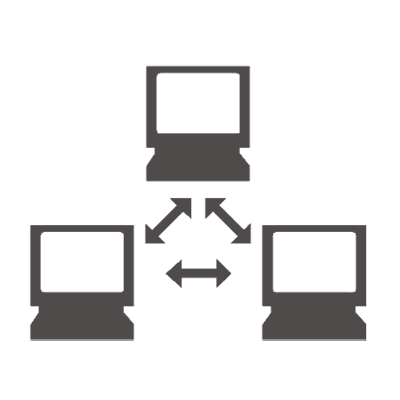Joanna Prokurat
Selected rules for imposing personal income tax on e-sport
17.12.2020
tax, sport, private clients
E-sport is gaining in popularity, resulting in an increase in the number of players, games and spectators, as well as an increase in revenue from e-sport. Such revenue is taxable, but it is not always clear under which rules.

Planned rules for imposing corporate income tax on limited partnerships from 2021
24.09.2020
tax, project
The guidelines for imposing corporate income tax on limited partnerships and some registered partnerships have now been stated with more specificity. On 16 September 2020 a draft Act Amending the Personal Income Tax Act, the Corporate Income Tax Act, the Act on Flat-Rate Taxation of Certain Income of Natural Persons, and Certain Other Acts (draft no. UD126) was published on the website of Poland’s Government Legislation Centre. The draft and the extensive justification for the proposal provide details of the rules for taxation of limited partnerships from 2021 forward. It should be borne in mind that these rules may change during the course of the legislative process.

Limited partnerships and some registered partnerships to be subject to corporate income tax
10.09.2020
tax, project
The Ministry of Finance intends to impose corporate income tax on limited partnerships, and on registered partnerships whose shareholders (taxpayers participating in their profits) are not disclosed. These types of partnerships will probably become CIT payers starting from 2021.

SME status and the Financial Shield of the Polish Development Fund
16.07.2020
coronavirus, state aid & EU internal market regulation
The Financial Shield of the Polish Development Fund (PFR) is one of the most popular support instruments launched in relation to the coronavirus epidemic. Aid under the programme is differentiated and depends on the classification of the beneficiary as an SME (micro, small or medium-sized enterprise) or a large enterprise. So determining the size of the enterprise is crucial for assessing the potential benefits. Another difficulty is the change in eligibility conditions for SMEs introduced by the fund, which may affect the situation of entities considering applying for subsidies and those who have already received them. Some recipients may have to repay the aid.

Claiming the IP Box in the video game industry
02.07.2020
new technologies, tax, intellectual property
The instrument popularly known as the “IP Box,” introduced on 1 January 2019, allows taxpayers to claim a lower, 5% rate of corporate income tax or personal income tax in their annual tax settlements for income generated from commercialisation of qualified intellectual property rights they have created or developed through R&D activity. In this article we discuss how to benefit from the IP Box in the game development industry, who is eligible for the IP Box, and the conditions that must be met.

Possible reduction of income tax advances
19.03.2020
coronavirus, tax
A system for supporting taxpayers struggling with the consequences of the coronavirus pandemic is being developed at the government level and will probably soon take effect. But taxpayers in difficulty may already draw on existing support instruments. One of them is reduction of income tax advances.

Anti-crisis shield
19.03.2020
coronavirus, project
The main points of the “Economic and social anti-crisis shield to protect businesses and employees in connection with the SARS-Cov-2 pandemic” was presented by the President, the Prime Minister, a group of other ministers, and the president of the National Bank of Poland at a press conference on 18 March 2020.

Selected anticipated changes in income taxes as of 2019
07.09.2018
tax, project
At the end of August 2018, the Ministry of Finance announced future significant changes in the most important tax acts. These changes are to enter into force at the beginning of 2019. We wrote about some of these here last week. Now we present further changes proposed by the Ministry of Finance, as published in the draft act of 24 August 2018 amending the Personal Income Tax Act, the Corporate Income Tax Act, the Tax Ordinance and other acts, which might be particularly important for taxpayers conducting business activity.

The split payment mechanism
02.08.2018
banking & finance, already in force, tax
Regulations introducing the split payment mechanism for VAT entered into force in Poland on 1 July 2018. This mechanism in B2B transactions is designed as a weapon in the fight against VAT fraud.

Split payment and the legal situation of financing banks
02.08.2018
banking & finance, already in force, tax
The split payment mechanism for business-to-business transactions entered into force on 1 July 2018. Introduction of this mechanism was motivated by the aim of closing gaps in the tax system. But split payment affects not only the situation of VAT payers, but also banks.

Elimination of income tax exemption for closed-end investment funds
03.11.2016
tax, project, capital markets
On the last day of October a notice was published on the Sejm website on filing of a parliamentarian’s bill to amend the Personal Income Tax Act and the Corporate Income Tax Act. The changes to the CIT Act, to enter into force on 1 January 2017, would eliminate the exemption from corporate income tax for closed-end investment funds (FIZ). This exemption has been used as a major instrument for tax optimisation, for example for entities involved in trading of debt and real property, and for taxpayers seeking protection against rules governing controlled foreign corporations (CFC).

Battle over social insurance burdens
10.12.2015
tax
High social insurance premiums in Poland motivate remitters and insureds to seek business models allowing them to reduce their contributions. But the Social Insurance Institution—with the support of lawmakers—is closing more loopholes.
